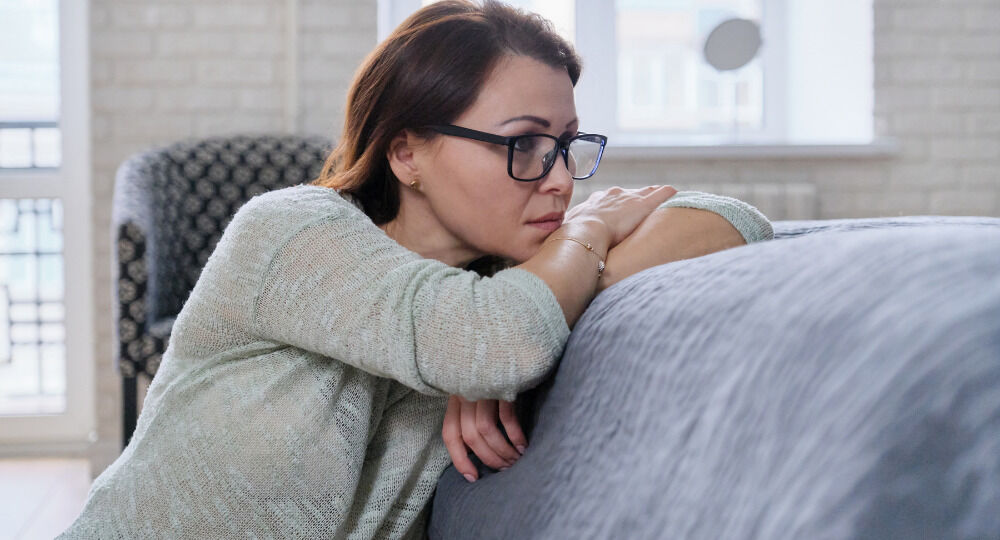Did you know that anxiety disorders are the most common mental health illness in the U.S.? It’s estimated that around 40 million adults struggle with anxiety each year. That’s more than 18 percent of the population! Fortunately, though, anxiety disorders are treatable and nothing to be ashamed of.
It’s not uncommon for individuals with anxiety to feel embarrassed about it, which can cause people to feel alone and suffer in silence. In addition, there is often a stigma associated with mental illness, so less than 37% of people with anxiety seek out treatment. And yet identifying and accepting anxiety are giant steps toward recovery.
So why do people get caught up in the shame and stigma, and how can that be lessened?
Why Do People Feel Ashamed of Their Anxiety?
Many of the common symptoms of anxiety have the potential to make you feel embarrassed or self-conscious. These symptoms include:
- Excessive sweating
- Talking very quickly or not at all
- Fear of talking on the phone
- Digestive problems
- Overthinking and fixation on an issue
- Breaking
- Blushing
- Fear of trying new things or going to new places
Any of these things can draw attention to yourself, which is often exactly what you don’t want when you have an anxiety disorder. So it’s not hard to see how you could slide into feelings of shame.
But instead of brushing these feelings aside, it’s important to recognize that this fear of embarrassment is real and needs to be validated. At the same time, the only way to work on your anxiety is to recognize and address it.
Why You Shouldn’t Feel Ashamed
You Didn’t Choose to Have Anxiety
You’re probably not ashamed of spraining your ankle or catching a cold, and having an anxiety disorder shouldn’t be any different. Just as we are all of varying height, we all have varying degrees of anxiety…some have more and some have less. It’s important to stop equating the presence of more anxiety with personal failure. Rather, it should be viewed as a condition that is present that needs to be managed. Being compassionate and understanding toward yourself can help you stay grounded and can go miles in terms of your recovery from anxiety.
It Has its Advantages
Thanks to internet culture and AI algorithms, these days many people are not thinking in inventive ways. You, on the other hand, likely bring a diversity of thought to any group you’re part of. You may be working on a team at work or in a family setting at home, and you are likely the person who can think things through in ways that others can’t. The way you see the world brings a unique perspective to any project or conversation, and it’s a good idea to recognize that that highly intelligent brain of yours is an asset much of the time.
Anxiety Requires Resilience
Anxiety is an obstacle that’s been put in your way and one you have to face every day. Would it be nice to not have to deal with so many worrisome thoughts? Of course. But they exist, and guess what? You are acknowledging the anxiety and fighting back. That requires resilience and persistence, and that makes you strong, and that’s reason enough to feel proud of yourself.
Therapy Can Help
Therapy can help you become more aware of your emotions, allowing you to become more accepting of your anxiety. Before you’ve accomplished that, however, the very idea of therapy might make you feel ashamed. You might be saying
- I should be able to fix my own problems.
- If I got to counseling, it means I’m crazy.
- People go to therapy because they want attention.
- I don’t want to look weak.
But remember, this is your anxiety talking. And as with all conditions, it’s important to seek help for the problem at hand. If your tooth is hurting and you can’t chew on one side of your mouth, it’s normal to call your dentist. They’ll help you with the problem and make suggestions for avoiding it in the future. Similarly, if anxiety is the issue at hand, it’s normal to call a therapist and get the specific help you need.
Your weekly therapy sessions can provide similar benefits when it comes to your mental health. Break the stigma and reach out today to set up a confidential consultation!



